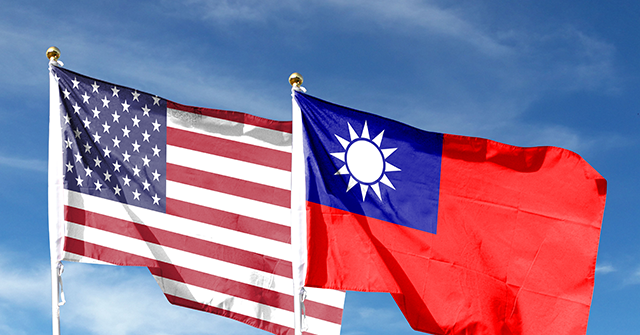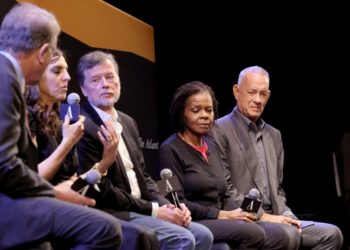Eighty years ago, the Allies—led by the United States’s Greatest Generation—triumphed and ended the global carnage of World War II. The stories of how the Republic of China (Taiwan) fought side by side with our American allies still resonate in Taiwan, especially the heroic exploits of the Flying Tigers, the First American Volunteer Group (AVG) of the ROC Air Force.
It is important to remember this history, particularly as the People’s Republic of China (PRC) engages in revisionism that falsely casts the communists as the central force in that war. The strength of Taiwan-U.S. ties was forged in the fires of that conflict and has only grown stronger with time.
In the years after the ROC relocated to Taiwan, U.S. aid was vital in helping us survive and rebuild. With that support—and the industrious spirit of the Taiwanese people—we transformed from an agricultural economy into a global technology leader. By the turn of the millennium, Taiwan had built a world-class semiconductor industry, supplying chips that power America’s most innovative companies, from Apple to NVIDIA and AMD. In many ways, Taiwan has been the silent partner behind the rise of U.S. tech as a global powerhouse—and with an eye on the future, we will continue to help American companies lead in the age of artificial intelligence.
Today, “bringing manufacturing back to U.S. soil” is the mantra of the Trump administration. Taiwan fully shares this vision. Our companies are expanding investments in the United States, as shown by TSMC’s $165 billion investment in Arizona. In fact, 40 percent of Taiwan’s outbound investment now goes to the U.S.—a testament to the quality of the American market and our dedication to U.S. reindustrialization. At this year’s Taiwan Expo USA, held August 14–16 in Dallas, more than 180 Taiwanese companies came to do business, underscoring our role as a top foreign investor in Texas over the past 18 months.
The economic and security partnership between Taiwan and the U.S. go hand in hand. At the Shangri-La Dialogue this May, U.S. Secretary of War Pete Hegseth emphasized the importance of stability in the Indo-Pacific—a region that is home to more than half the world’s population and nearly two-thirds of global GDP. As a responsible stakeholder, Taiwan has consistently reaffirmed its commitment to maintaining peace and stability in the region. To that end, President Lai has pledged to raise Taiwan’s 2026 defense budget to $31.08 billion, or 3.32 percent of GDP, with the goal of reaching five percent by 2030. We are also preparing a special initiative to acquire up to $10 billion in U.S. made defense systems. Since 2016, the U.S. has approved more than $26 billion in arms sales to Taiwan—$18.76 billion of that during President Trump’s first term alone.
At the same time, Taiwan is intensively developing asymmetric capabilities, strengthening our reserve forces, and advancing whole-of-society resilience. Our guiding principle is clear: peace through strength. Our objective is to create a level of deterrence so credible that the idea of attacking Taiwan never even enters an adversary’s plans. This is not provocation, but prudence. The people of Taiwan love peace. President Lai has repeatedly emphasized that we seek dialogue with the PRC. But let there be no doubt: we are prepared to defend our freedom and way of life if necessary.
On this 80th anniversary of the end of World War II, Taiwan stands as a steadfast friend of the United States. We look forward to working with Washington to ensure that U.S. leadership—and Taiwan-U.S. partnership—continue to shape a peaceful and prosperous world for the next 80 years and beyond.
Ambassador Alexander Tah-Ray Yui is Taiwan’s representative to the United States.
The post Exclusive— Ambassador Alexander Tah-Ray Yui: Taiwan Is an Invaluable Partner to the United States appeared first on Breitbart.




